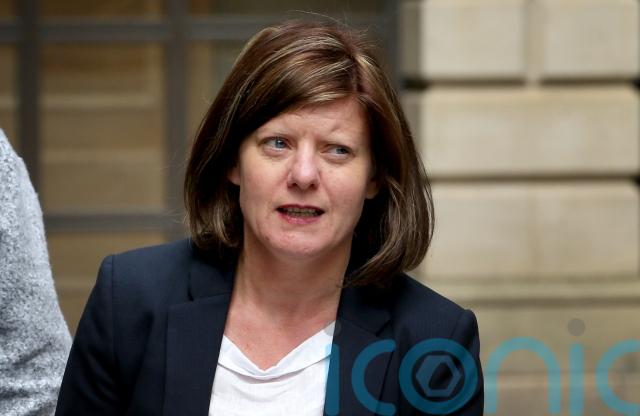
The father of a teenager murdered more than three decades ago has told MSPs that scrapping Scotland’s controversial not proven verdict will be a “relief”.
Joe Duffy has campaigned for the verdict – which is one of three open to juries in Scotland along with guilty and not guilty – to be ditched after the man accused of killing his 19-year-old daughter Amanda in 1992 was acquitted after a jury found the case not proven.
Francis Auld walked free from the High Court in Glasgow in November that year as a result.
Since then, Mr Duffy has worked to support other families who have lost a loved one to murder, as well as campaigning to have the not proven verdict scrapped.
With the Scottish Government having included scrapping the verdict in its Victims, Witnesses and Justice Reform (Scotland) Bill, Mr Duffy told MSPs the move is “long overdue”.
Giving evidence to Holyrood’s Criminal Justice Committee on Wednesday, Mr Duffy said: “It is an anomaly that shouldn’t be there.”
He claimed jurors often do not understand that returning a verdict of not proven is the same as finding someone not guilty – with both verdicts resulting in the accused being acquitted.
He said its use could leave families hoping for justice in the courts “further traumatised”.
Mr Duffy told MSPs: “There is no requirement for three verdicts, especially when two of them mean the same thing.
“The only difference between not proven and not guilty is the spelling. That is an actual fact.
“I actually sat on a jury in a drugs trial in Hamilton in 2012 and I can categorically tell you virtually nobody on that jury had any understanding why not proven is there, they actually thought it was some form of safeguard, if you couldn’t make up your mind you could retry them again.
“We deal with murder victims’ families, I can tell you that verdict leaves you further traumatised because you have got a complete anomaly that shouldn’t be there.
“It is the trauma it creates for families, and you retraumatise them, there is no level of justice, that is how they feel about it, because somebody has just walked free.”

He said he had “always hoped” not proven would be scrapped, and with a Bill now before Holyrood it “seems that not proven might actually be abolished”.
But Mr Duffy told MSPs: “I am not getting any younger so the sooner the better please.”
If the verdict is ditched, he said “it would be a relief”.
Mr Duffy added: “We would have a party, it will be a family party.”
Meanwhile, Sandy Brindley, chief executive of Rape Crisis Scotland, told the committee scrapping not proven is the “right thing to do”.
She told MSPs: “I think it is obvious to anyone guilty men are regularly walking free.”
She argued not proven is used disproportionately in rape cases and added that this, combined with the impact jurors’ attitudes can have in such cases, means “our worry is the not proven verdict could be contributing to wrongful acquittals in rape cases”.
The not proven verdict is used disproportionately in rape cases. It can leave survivors feeling like they don’t understand the decision made by the jury. Some survivors described feeling confused about what the jury actually thought of their case.
— Rape Crisis Scotland (@rapecrisisscot) December 6, 2023
As well as proposing to scrap the not proven verdict, the Scottish Government Bill plans to reduce the number of people on juries from 15 to 12 – bringing Scotland in line with many other countries.
The Bill as it stands would then introduce a requirement that at least eight jurors would need to support a guilty verdict for a conviction – moving away from the current system which allows someone to be found guilty if a simple majority of jurors support this.
But Ms Brindley said if the law is changed to require juries to return a unanimous verdict, this would have an impact on rape convictions.
She said: “If you were to move towards a requirement or a preference for a unanimous verdict, you would literally never get a conviction in a rape case.
“It is almost unheard of to get a unanimous verdict in a rape case, even where there is overwhelming evidence, because some people, no matter what the evidence is, there are some members of the public that will not convict in a rape case.
“If we had that requirement in Scotland we would see a dramatic fall in convictions.”
Subscribe or register today to discover more from DonegalLive.ie
Buy the e-paper of the Donegal Democrat, Donegal People's Press, Donegal Post and Inish Times here for instant access to Donegal's premier news titles.
Keep up with the latest news from Donegal with our daily newsletter featuring the most important stories of the day delivered to your inbox every evening at 5pm.